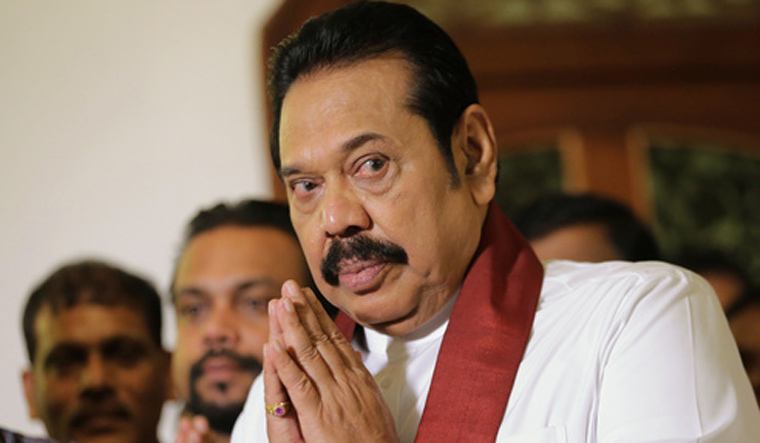Sri Lankan Prime Minister Mahinda Rajapaksa (76) finally resigned on Monday, hours after his supporters attacked anti-government protesters outside embattled President Gotabaya Rajapaksa’s office, leaving at least 130 people injured and prompting authorities to impose a nationwide curfew and deploy army troops in the capital.
In the clashes, a ruling party MP Amarakeerthi Athukorala opened fire and critically wounded two people blocking his car in Nittambuwa, and was later found dead after trying to take refuge in a nearby building,
The violence occurred as pressure mounted on the embattled government led by his younger brother and President Gotabaya to form an interim administration to overcome the worst economic crisis facing the country.
After his resignation, Mahinda Rajapaksa is facing calls for his arrest from Opposition politicians for inciting violence against peaceful anti-government protesters that claimed at least five lives, left over 200 people injured and saw arson attacks on the homes of several politicians.
The same sentiments were expressed by former President Maithripala Sirisena and the main Opposition Samagi Jana Balawegaya party’s leader Ranjith Madduma Bandara.
“He must be arrested for encouraging violence. There was no reason to attack the peaceful protesters,” Sirisena said.
Sri Lanka has been witnessing unprecedented demonstrations for the last several weeks with the protesters demanding the resignations of Prime Minister Rajapaksa and his younger brother, President Gotabaya Rajapaksa. The agitators want an interim government to be formed to overcome the worst economic crisis facing the country.
Sri Lanka is currently in the throes of unprecedented economic turmoil since its independence from Britain in 1948. The crisis is caused in part by a lack of foreign currency, which has meant that the country cannot afford to pay for imports of staple foods and fuel, leading to acute shortages and very high prices.



